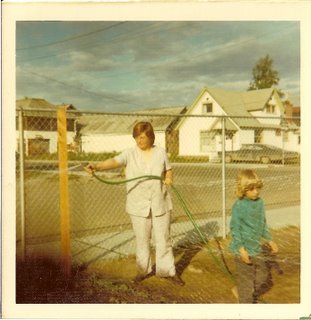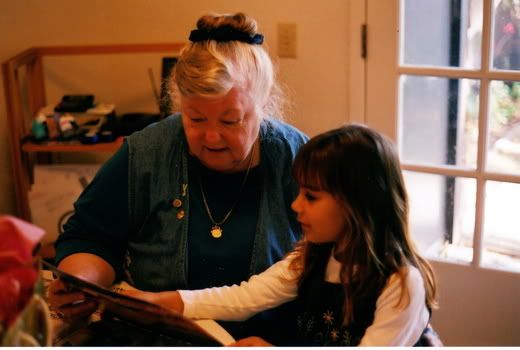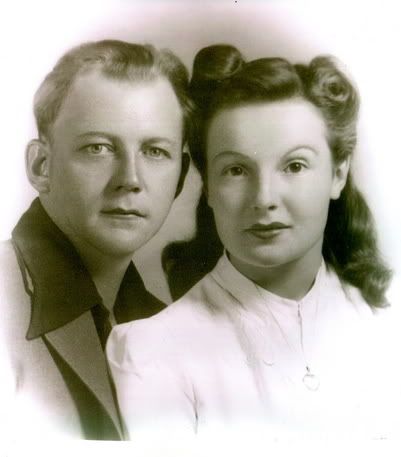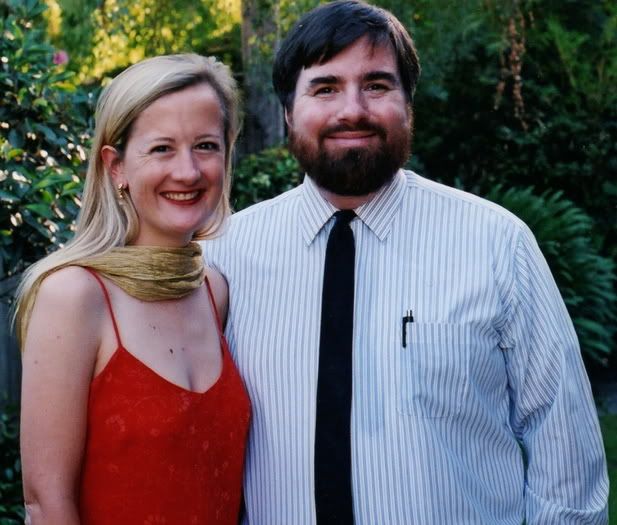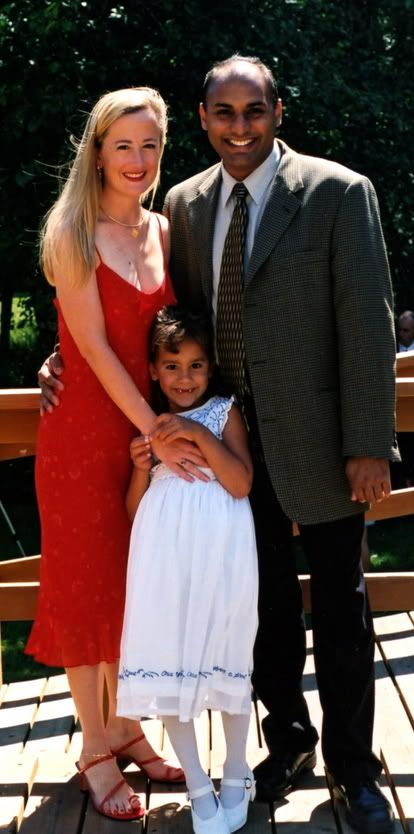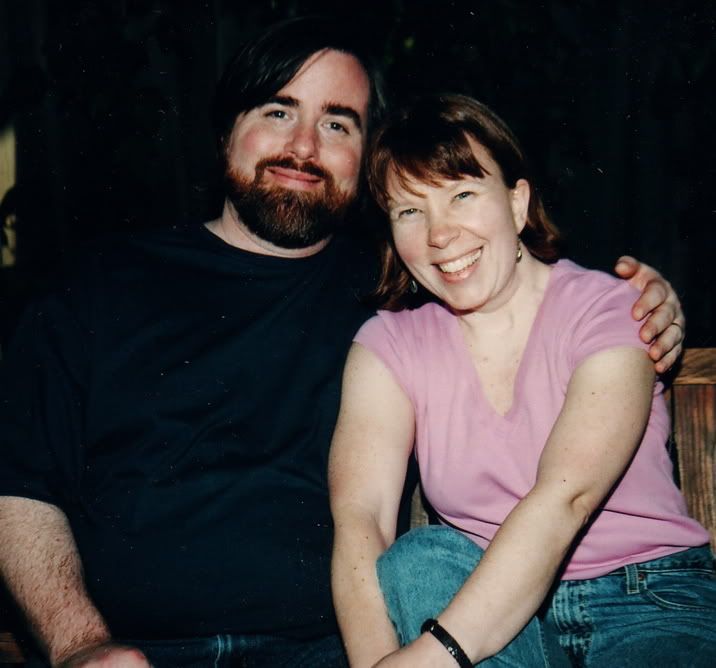
Richard and Julie are snowflakes -- each a unique individual. Of course they have their similarities, so do real snowflakes. I could be suddenly thrown back into pregnancy, and it wouldn't take me long to know just what child I was carrying, even if there were no external clues.
Does this child get the hiccups? Kick by flinging out and hitting me all at once with two hands, two elbows, two shoulders, two feet, two knees, a butt and a head (the first time that happened, I thought there was a litter in there. A large litter!)? Move and stretch and wiggle? Be quiet when I walk and active when I lay down? This one is Richard.
Does this child lay low and move quietly? One part at a time? Put a foot on my pelvis and stretch out as tall as can be, pushing in both directions? Reach out and touch me like a kitten? This one is Julie.
Both were born early, but Richard and I had the false labor routine three times before he finally did it. And then, the doctor had to drop his coffee and catch him, because once he did it, he really did it. Julie, as usual, lay low and, only after the placenta started to part, had to be induced to come out. Wasn't really sure she was ready.
Richard was so focused on learning to walk that he never really crawled. He scooted on his butt for a while. He stood in the middle of the room and fell and stood and fell and stood and fell. Until he could manage to stay up, he stood up holding on to something, and walked that way. He would pull himself up on the wall and walk around the room till he got to the door, following me from room to room, refusing all offers of help, sometimes going around three and a half walls instead of crawling four feet. By the time he was nine months old, he was walking through the middle of the room.

Julie just crawled away, pulling herself up to see Richard if he was in a chair or on the bed, but otherwise content to live on the floor. Never stood up in the middle of the room. I never saw her stand and fall. Never walked while holding on to something. Just as I was beginning to wonder if she was ever going to walk, one day when she was 15 months old, she crawled out to the middle of the room, stood up, and walked. And walked. And walked. Walked until she suddenly lay down, right where she was, and slept. Did that for days -- walk, sleep, walk, sleep, occasionally eat. Slept in the middle of the floor. Slept under the table. Slept in the doorway. No practice for her. Wait and do it perfectly.
Richard said his first word, "light," at nine months. He added words every day at a terrific rate, one of his first ones being "what?" as he pointed to the thing he wanted identified. By the time he was a year old, he was talking in short sentences. We went to the clinic, and the intern who saw him asked if he had started trying to talk yet and when I said he could say over 25 words, laughed at me and told me that I was hearing "mamammaa" as Mama and such. So, I said, "Say hi to the doctor, Richard" and he said, "Hi, doctor"
very clearly.
Julie hadn't said a word at 15 months. I was studying child development at UC Berkeley, and the books said second children talked earlier than first, and girls earlier than boys, and if she hadn't obviously been very bright, I might have been worried. She didn't need to talk -- she would sit on her knees, bounce up and down, and depending on what gestures she made, Richard would tell me what she wanted. If I was sitting studying, she would crawl up behind me and touch me on the back of the knee, I would look down, and she would bounce. And then, one morning when she 15 and 1/2 months old, we were visiting my folks, and she walked out while Mama and Daddy were having coffee and the rest of us were asleep, looked around, and said, "where's the little dog?" And after that, she talked all the time -- always in complete sentences.
They even followed their patterns with their teeth. Richard would cut one at a time, and they were hell -- his saliva and urine turned very acidic and the first I knew that a tooth was coming was when he got diaper rash, followed by a runny nose. One by one, painful and horrible and it made life hell the whole time. Julie would wake up with four new teeth, no signs that they were coming.
I've already told you about going for a walk with them, with Richard out front in a hurry to get to the next place, and Julie in back, examining the tiniest things with intense concentration. Going to a restaurant, even to this day, is a trip. Richard knows what he wants immediately, often before we get there because he is going to that restaurant to have that dish. Julie has to read each item, think about how that will taste and how she will feel if she eats it, and then run her short list through the drill -- when she was little, by the time she was ready to order, we could have been out the door and on to the next thing on our agenda. And then, she ate so slowly. I have to confess, that I did something that I now know could lead to a minor eating disorder (and I'm so glad it didn't!); when she was four, I made the rule that after everyone else finished a meal, she had another 20 minutes and then I took the plate. I put out a timer so she could see how much time she had. Last time I talked to her about this, I was trying to figure out why I didn't just leave her there -- I could have done the dishes with the next meal's. But now I remember. I would have had to go to work, leaving her at the table instead of taking her in the car to the child care provider. She would have been sitting at the table for hours after I was asleep in bed.
In A Nutshell follows.
 I love filthy, dirty snow.
I love filthy, dirty snow.
